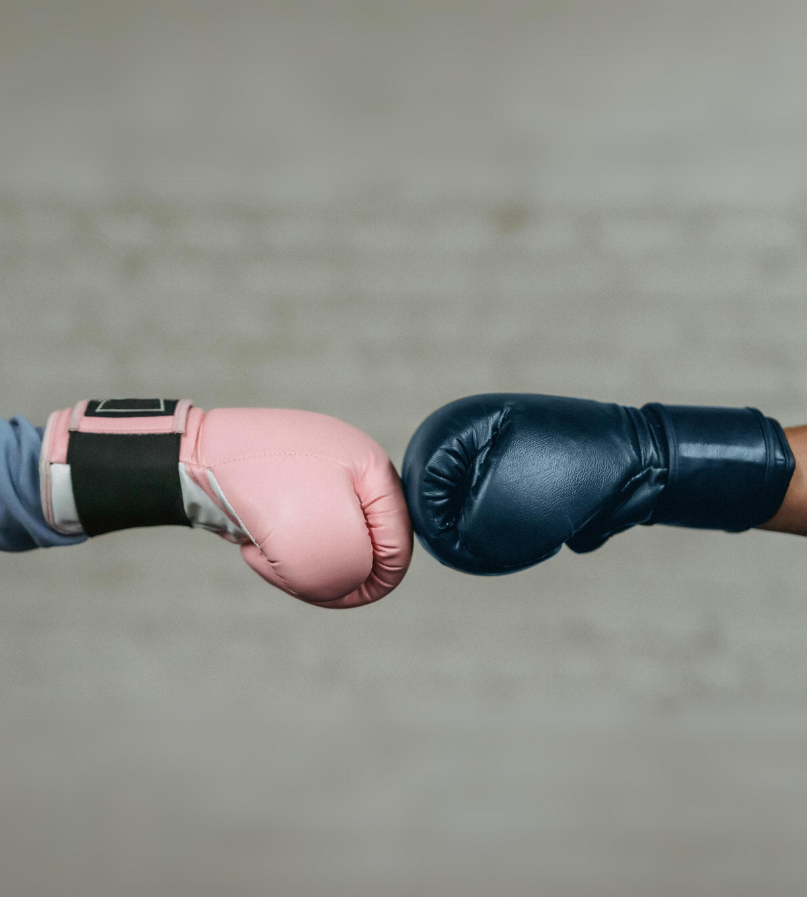Not sure if a personal loan or credit card is right for you? Well, we’ve got all the facts to help you make your next smart move. Although both can be used to borrow money, personal loans and credit cards are actually pretty different. Let’s dive in and run through what you need to know.
In the battle of personal loan vs credit card, there are a few key factors that you’ll want to consider before making your decision. Before we get to that though, we’re going back to basics so you have a much clearer understanding of how both personal loans and credit cards work before weighing up your options.
What is a personal loan?
A personal loan allows you to borrow a fixed amount and repay it in regular instalments, plus interest, until the end of your loan term. Here at Wisr, you can borrow for any worthwhile purpose. This includes reasons like consolidating debt, upgrading your vehicle and renovating your home.
Want to know more? Jump into our complete Smart Guide, What is a personal loan?
Personal loans at a glance
Fixed amount: you receive a lump sum amount upfront, which you then repay in regular instalments over a set period.
Repayment terms: personal loans typically come with fixed repayment terms. At Wisr, you can choose to repay your loan over 3, 5 or 7 years. This means you’ll have a predictable monthly payment throughout the life of the loan.
Interest rates: the interest rate that you’re offered on a personal loan will be based on your credit score and how much you’re looking to borrow. This means that although lenders may have a minimum and maximum interest rate available, the interest rate that you’re offered will be personalised to you.
What is a credit card?
A credit card is a revolving line of credit that allows you to borrow money up to a certain limit to make purchases or withdraw cash (although - hot tip - there may be extra charges for cash withdrawals, so check your credit card’s T&Cs first).
So, what do we actually mean by a revolving line of credit? Well, with a revolving line of credit, you can borrow up to the product’s maximum credit limit and once you repay what you owe, the same amount will be available for you to borrow again.
With a credit card, you’ll have the option to pay off your balance in full each month and avoid paying interest, or make minimum monthly payments.
Credit cards at a glance
Revolving credit: you have access to a credit limit that you can use repeatedly as long as you stay within your limit and make the minimum payments.
Monthly payments: you can choose to pay off the entire balance, which avoids interest charges, or make a partial payment, carrying over a balance that accrues interest.
Interest rates: credit card interest rates are usually higher than those for personal loans. They can also vary depending on the card issuer and your credit score.
Let’s take a closer look at personal loans
Right, now you’ve got the basics covered, let’s take a closer look at the benefits and considerations of personal loans.
What are the benefits of personal loans?
Predictable payments: with a personal loan, you’ll have a fixed ongoing payment, making it easier to budget and plan your finances.
Lower interest rates: personal loans often have lower interest rates compared to credit cards, especially if you have good credit.
Larger loan amounts available: personal loans often give individuals more scope to borrow larger amounts than credit cards.
Longer repayment terms: you can usually spread the cost of your borrowing out over a longer amount of time.
Debt consolidation: personal loans can be an effective way to consolidate multiple debts into a single payment, potentially lowering your overall interest rate.
What do I need to think about?
Eligibility: you’ll need to meet your chosen lender’s eligibility criteria to qualify for a personal loan and the better your credit score, the better the interest rate you’ll be offered.
If you’re not sure if you’ll qualify for a Wisr personal loan, you can get a quick rate estimate to see what’s available to you without affecting your credit score.
Flexibility: it’s always a good idea to read your loan agreement carefully before you accept it so you’re fully aware of any fees, charges or terms within your loan contract. Here at Wisr, we celebrate good money habits so we don’t charge you any fees for making extra repayments or repaying your loan in full. However, this often isn’t the case with other lenders.
What are the pros and cons of credit cards?
Sure, credit cards have their perks. But if you can’t afford to pay off your credit card in full each month, debt can build up pretty quickly.
What are the benefits of credit cards?
Flexibility: credit cards offer a revolving line of credit, allowing you to borrow as little or as much as needed up to your credit limit.
Rewards and perks: many credit cards come with rewards programs, cashback offers, and other perks like travel insurance or purchase protection.
Building credit: responsible use of a credit card, such as making timely payments could help you build up a strong credit history and improve your credit score over time.
Emergency access: credit cards provide you with immediate access to funds in case of emergencies, which can be useful when unexpected expenses arise.
What do I need to think about?
Higher interest rates: credit cards generally have higher interest rates compared to personal loans. Carrying over a credit card balance instead of paying it off in full at the end of the month could result in substantial interest charges.
Potential for debt building up: only making the minimum monthly repayment can lead to credit card debt building up quickly due to compound interest if not carefully managed.
Additional fees: a credit card can come with an annual or monthly fee, as well as other charges such as late payment fees or foreign transaction fees.
Personal loan vs credit card: which is right for me?
So, personal loan vs credit card. Still undecided? Well, there are a few questions that you can ask yourself to help you work out whether a personal loan or credit card is the right choice for you.
How much do you want to borrow?
Personal loans: ideal for larger, one-time expenses. At Wisr, we offer unsecured personal loans up to a maximum of $62,000 and secured vehicle loans up to $147,000.
Credit cards: better for ongoing or smaller expenses. Maximum credit limits can vary on a number of factors including income, liabilities and credit card provider. In Australia, credit card limits usually range from $500 to $15,000, however they can stretch up to $100,000.
Why are you looking to borrow?
Personal loans: as we just mentioned, personal loans are better for bigger, one-off payments such as buying a vehicle or making home improvements. You can also use personal loans to consolidate existing debt. The fixed amount and term make loans ideal for predictable expenses and long-term planning.
Credit cards: again, credit cards are better for ongoing or smaller expenses where flexibility is important. They’re useful for everyday purchases, managing cash flow, and handling emergencies.
Are you looking for flexibility or consistency (or both)?
Personal loans: have a fixed repayment schedule with consistent monthly payments. The loan term is arranged in advance, giving you clarity and structure. Plus, here at Wisr we don’t lock you into a long loan term. If you want to make extra payments or repay in full, you can do so at no extra cost.
Credit cards: allow flexibility with the option to pay off the full balance, a portion of it or just make minimum payments. This flexibility can be beneficial but requires discipline to manage effectively.
How quickly would you be able to repay what you owe?
Personal loans: allow you to spread the cost of your borrowing over a longer period of time, typically up to a maximum of 7 years. This can help make the monthly repayments more manageable, although it’s worth noting that the longer the loan term you choose, the more interest you’ll pay overall.
Credit cards: can be an appealing option if you’re confident that you can repay what you’ve borrowed in full within one month. This is because if you repay your full outstanding balance within your monthly repayment window, you usually won’t be charged interest on your borrowing. If you can't repay your full balance however, the outstanding amount will carry over and you’ll be charged interest on that amount until you are able to repay it, meaning the amount owed will build up over time.
Are you looking for additional perks?
Personal loans: don’t often come with additional benefits, although you may be able to get better deals on other products or services that your lender offers.
Credit cards: can come with rewards such as cashback offers or the ability to build up points that can be used on perks such as airline or concert tickets.
Ultimately, deciding between a personal loan and credit card depends on your financial needs, spending habits, and overall financial goals.
Personal loans are well-suited for larger, planned expenses and have predictable repayment terms. Credit cards offer flexibility for everyday spending and sometimes come with added perks, such as rewards.
Understanding the differences between these credit products can help you make a choice that aligns with your financial situation and helps you reach your money goals.
Come to a decision? If you think a personal loan is right for you, you can get a quick, 2 minute rate estimate to find out your loan options with Wisr. And don’t worry, getting a rate estimate with us won’t affect your credit score.
Share Article
Disclaimer: This article contains general information only, and is not general advice or personal advice. Wisr Services Pty Ltd does not recommend any product or service discussed in this article. You must get your own financial, taxation, or legal advice, and understand any risks before considering whether a product or service discussed in this article may be appropriate for you. We have taken reasonable efforts to ensure that the information is accurate at the time of publishing, but the information is subject to change. We may not update the article to reflect any change.
We're built on purpose.
Keep reading, we've got more
Think a personal loan is right for you?
Get a quick rate estimate to find out your loan options with Wisr.




